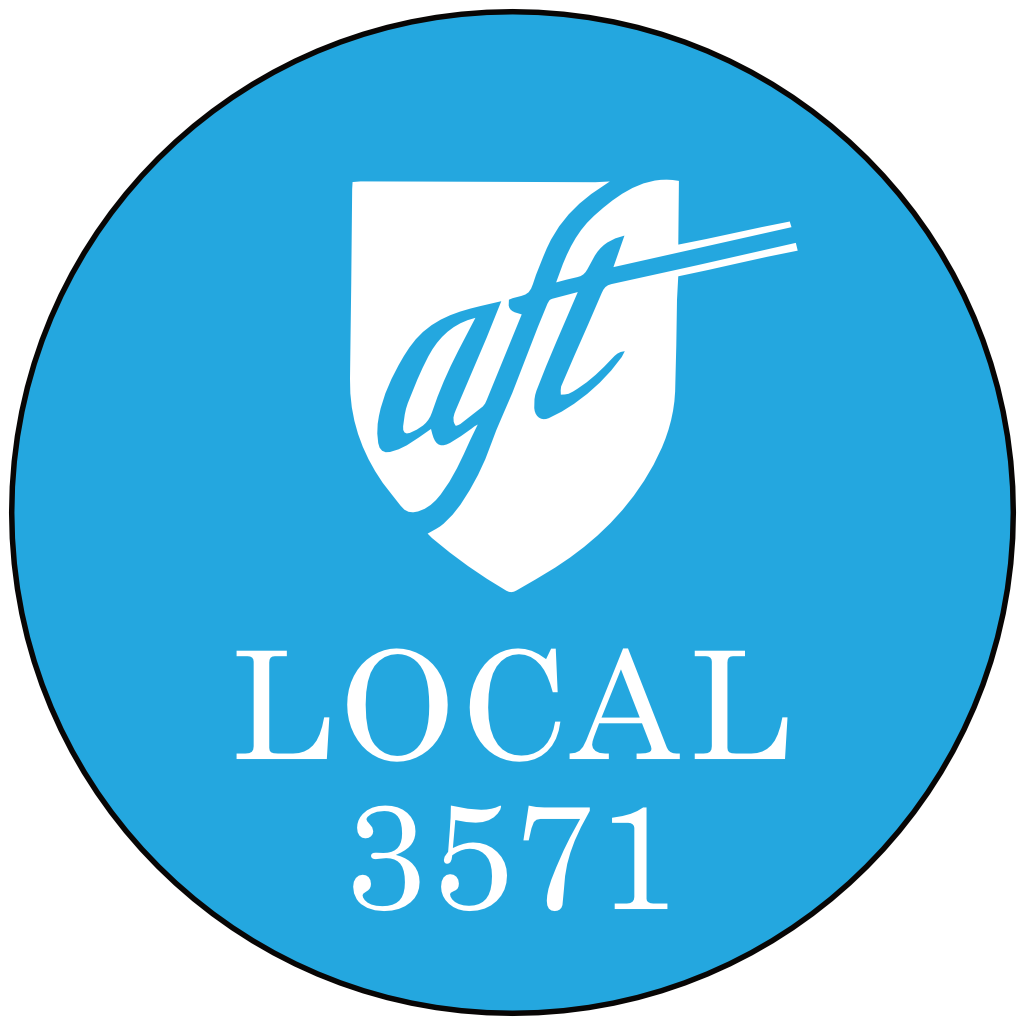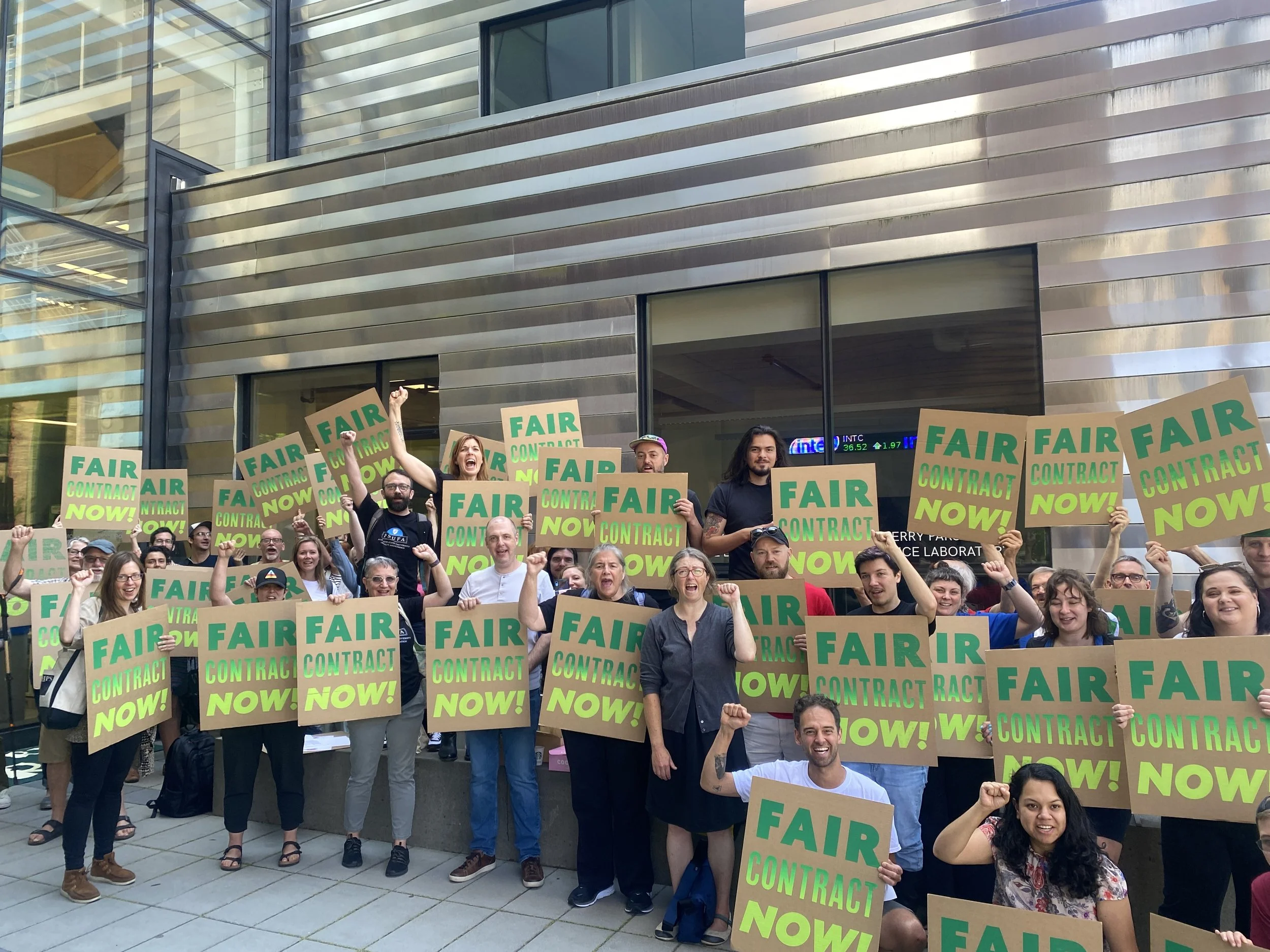Bargaining Recap: 2/13/26
It has been one year since your PSUFA bargaining team officially began negotiating a new contract with the University, an important milestone that has forced both parties to rethink what is achievable through this ongoing process. While the administration and its lawyers are eager to get the spotlight off of their reckless campaign to undo the University’s commitments to adjunct faculty, your Union has decided it is time to call for mediation, marking the coming months as the final stages in bargaining this contract.
While negotiations will continue, this phase of the process means that it is time for you and your fellow adjuncts to flex your collective power, exercising a credible strike threat that will ensure that, in the face of the bad-faith conduct of this unpopular administration, we can still improve your working conditions and hold onto the hard-won gains of the past. If you have not already, join your colleagues in pledging to strike if the University fails to meet your demands for fair pay with preserved benefits funds, job security, and academic freedom.
Job Security, Behind Closed Doors
As your PSUFA bargaining team was deliberating when to call for mediation, the administration and its lawyers reached out with a request for a special closed session on Article 8 (Appointments and Assignment Rights), the part of the contract that outlines your job security protections. Your Union made the good-faith decision to entertain the University’s ask, granting admin a few hours behind closed doors in order to see if there is any chance that their team will back down from the effort to eviscerate your Article 8 protections.
In previous sessions, PSU unveiled its irresponsible plan to overhaul the system that provides you and your fellow adjuncts with the already limited mechanisms for job security that you have. Admin’s proposals would eliminate two-year contracts, undermine “assignment rights” commitments to three or fewer courses per adjunct, and ignore any promise of preferred rehiring for adjunct faculty affected by program downsizing and closure.
In response, your bargaining team used the closed session to lay out three governing principles that should guide the job security safeguards of the article:
Adjuncts deserve stable and predictable employment in order to provide sustained support for PSU’s students.
Adjunct faculty members should have the opportunity to maximize and diversify their courseloads, since longitudinal relationships with students is critical to their success.
The University has the responsibility to invest in adjunct faculty, fostering your expertise and institutional knowledge and maintaining its commitments to you even through difficult transitions like curricular reforms and program closures.
Though admin presented the session as an open space for workshopping common concerns about the structures enshrined in Article 8, the University’s team seemed more interested in using the conversation to continue to justify the harmful reforms advanced through their proposals.
Your bargaining team responded by emphasizing the shared-interest concessions already built into PSUFA’s proposals, such as an extended initial period for new adjuncts. Members of your team defended the courseload commitments of your “assignment rights” protections, and they challenged the University’s push for the end to two-year contracts—making clear that your Union would only consider such a radical change if PSU were prepared to offer adjuncts continuous contracts instead. Additionally, PSUFA made the case for a good-faith re-hiring commitment that could provide a mechanism for restoring employment to adjunct faculty members, such as those teaching for University Studies, who are threatened with non-renewal due to the impending overhaul of PSU’s general education curriculum.
Mediation and the Bargaining Timeline
Since soliciting your priorities in the bargaining survey before the negotiations began, adjunct faculty members have spent the past six months performing unprecedented outreach, making calls, knocking on doors, and visiting classrooms. These conversations have revealed our key priorities: you and your fellow workers want wages that keep up with the cost of living, preserved benefits funds, protection for academic freedom rights, and stronger mechanisms for job security. In light of these needs and interests, your bargaining team has decided that it’s time to call for mediation.
While direct bargaining with open sessions is expected to continue through March, the state’s Employment Relations Board has appointed a professional mediator to guide the negotiations through their final stages.
By advancing into the mediation phase, your bargaining team has ensured that adjunct faculty at Portland State will have a new contract in place during the course of spring term. This is a critical need in light of PSU’s well-documented willingness to use contract expiration as a pretense for unlawful action that harms you, such as last year’s illegal withholding of benefits from PSUFA adjuncts. Your team's goal in mediation is to secure the best possible contract for adjunct faculty. Strike readiness, though, is crucial to our leverage at the table. If we cannot reach an agreement—and if we haven’t shown a credible strike threat—Oregon labor law empowers the university to impose a new contract of its choosing.
Unless you and your fellow adjuncts flex your collective power by pledging to strike, President Ann Cudd’s administration could force an agreement on you that diminishes the buying-power of your wages, strips you of access to critical benefits funds, leaves you vulnerable to attacks on your academic freedom, and takes away the current job security protections that you have. Your solidarity is what stands between you and your coworkers, and that dismal outcome.
Learn more about the bargaining process and the power of withholding your labor by signing up for a PSUFA strike school. See where the negotiations currently stand by consulting the bargaining issues tracker and keep up with the latest bargaining recaps right here on the PSUFA website.







